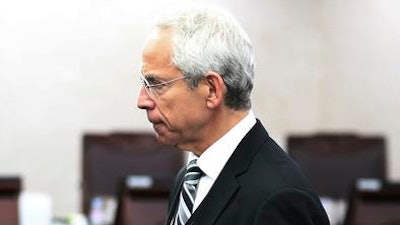
SEOUL, South Korea (AP) — South Korea's antitrust regulator slapped a 1.03 trillion won ($865 million) fine on Qualcomm Inc. Wednesday for allegedly violating competition laws.
The Fair Trade Commission said that the San Diego, California-based company had engaged in unfair business practices in patent licensing and chip sales, including refusing to let rival chipmakers license patents essential for chip making.
The FTC said Qualcomm allegedly used its dominant position in the modem chip market to force handset makers to pay license fees for a broad set of patents under terms it set unilaterally and to coerce handset makers into signing licensing contracts.
The fine, the biggest ever levied by the antitrust regulator, "will restore fair competition in the mobile communications industry," Shin Young-sun, secretary general at the Fair Trade Commission, told reporters at a briefing.
Qualcomm rejected the ruling, saying it plans to appeal it in court.
Qualcomm made $25.1 billion in 2015 from collecting patent royalties and selling modem chips. South Korea, home to the world's largest smartphone maker Samsung Electronics, accounts for about 20 percent of its global revenue.






















